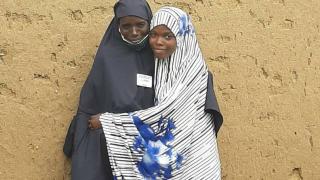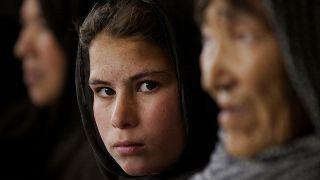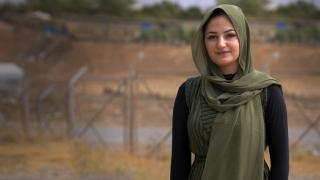5 Facts About Women, Conflict and Education
5 Eye-Opening Facts About Women, Conflict and Education
why education for women and girls in conflict zones is more urgent than ever
September marks a new beginning for many as students around the world return to school. The fresh scent of new notebooks, the anticipation of learning and the joy of reuniting with friends are moments cherished by many. But for countless women and girls living in conflict zones, this simple joy is unattainable.
In fragile and conflict-affected settings, education is not just a luxury — it’s a lifeline. Yet, girls are 90% more likely to be out of secondary school in these regions compared to those in safe areas, and among the women who enrolled in our Stronger Women, Stronger Nations programme in 2023, only 33% had some level of literacy. These statistics reveal a harsh reality that we cannot ignore.
Fact 1: Over 39 million girls are out of school due to conflict and crisis
Conflict and instability force millions of girls out of school, leading to a loss of education that has long-term effects on their futures. Without education, these girls are more vulnerable to exploitation, early marriage and poverty.
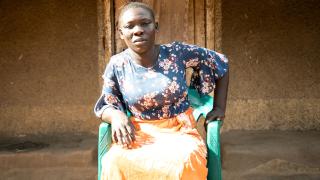
meet Suzan
programme graduate, south sudan
I grew up during the Second Sudanese Civil War and didn’t get the chance to go to school ... I hoped their training would strengthen me and I was right.
Fact 2: Women in conflict zones are nearly twice as likely to be illiterate compared to their male counterparts
Illiteracy rates among women in conflict zones are staggering. In many regions, traditional gender roles and a lack of resources prioritise boys' education over girls, leaving women and girls without the skills they need to break free from cycles of poverty and violence.
Not only does conflict disrupt education, it also deepens existing gender inequalities.
Fact 3: Educated women are key to rebuilding war-torn societies
Studies have shown that when women are educated, they are more likely to contribute to peacebuilding and economic recovery efforts in their communities. Education gives women the tools they need to become leaders, entrepreneurs and advocates for peace.
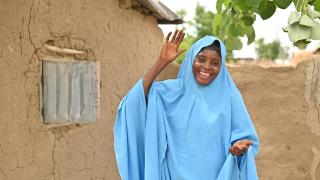
Meet Hadiza
programme graduate, nigeria
Hazida's education was cut short when she got married aged 12. She says leaving school was her greatest regret - and joined our Stronger Women, Stronger Nations programme to continue learning in adulthood.
Our training has helped Hadiza keep hold of her husband's land after he died, refuse a second marriage she did not want, support her children and advocate for women's security in her village. Hadiza is helping to prevent violence against women in her community, using tools she gained in our programme to educate others on their rights and successfully advocate for a female police officer in their village.
Fact 4: Conflict-related sexual violence disrupts education for thousands of girls every year
The trauma of sexual violence in conflict zones has a devastating impact on girls' education. Many are forced to leave school due to stigma, fear or the need to care for children born of rape, perpetuating a cycle of poverty and vulnerability.
Fact 5: Investment in girls’ education can prevent future conflicts
Education is one of the most effective ways to reduce the likelihood of conflict. Girls who are educated are more likely to understand their rights, participate in decision-making and contribute to stable, peaceful societies. When women are educated and included meaningfully in peace processes, it increases the probability of a peace agreement lasting at least two years by 20%, and increases the probability of a peace agreement lasting 15 years by 35%.
Read our blog to see what our partners from women's rights organisations in Nigeria, South Sudan and Yemen had to say upon reflecting on their time in New York at the United Nations' Security Council's Women, Peace and Security Week.
Read more
Every woman has the power to transform her own life — and the lives of girls around her. On International Day of the Girl Child, we are spotlighting the barriers to equality facing girls in Nigeria and the women working to clear the way.
Since the Taliban’s return to power in Afghanistan in August 2021, Afghan women have experienced profound changes in their daily lives. The de facto government has reinstated many restrictions, severely limiting the rights and freedoms of women and girls.
Yet, in the face of these challenges, Afghan women have shown extraordinary determination and strength, finding ways to resist and adapt. Here, we explore five significant ways their lives have changed, highlighting both the difficulties they face and their ongoing fight for their rights.
Amina
subtitle:
In Afghanistan, Amina* dares to stand up for women’s rights. Women have been virtually erased from public life over the past two years: banned from parks, gyms, restaurants, most jobs and education. Opposing these restrictions is incredibly dangerous, but Amina dares to keep teaching in our training centre. She braves the constant scrutiny of government authorities and she dares to spread the word that education should be the right of every woman and girl.
*Although the story is real, for reasons of security and privacy, we're not using Amina's real name or photograph.

